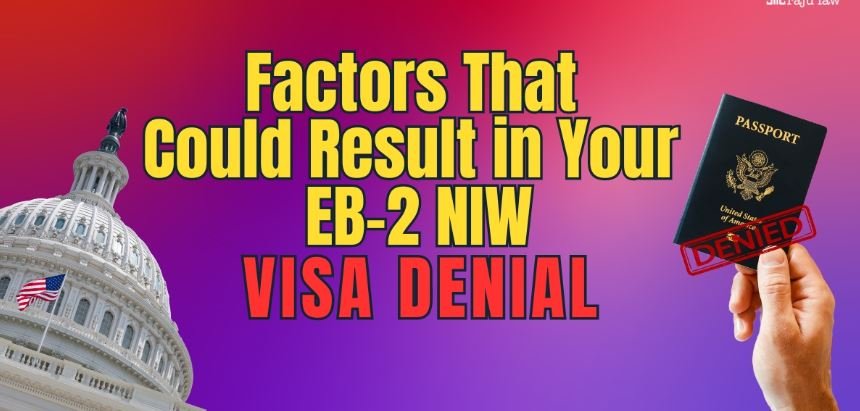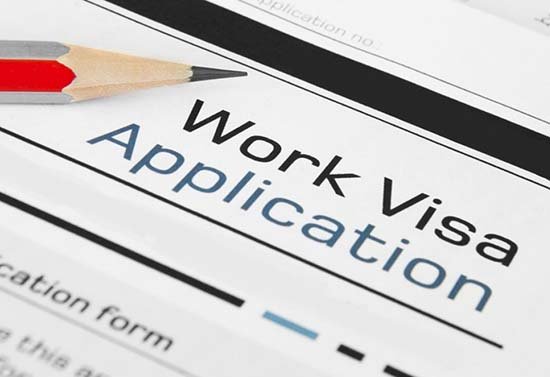Introduction
The EB-2 National Interest Waiver (NIW) is an attractive option for many skilled professionals from Africa seeking to work and live in the United States. However, the application process can be complex, and several factors may lead to a denial. This article explores why an EB-2 NIW petition might be refused and how to avoid these pitfalls.
1. Inadequate Evidence of National Interest
To qualify for an EB-2 NIW, the applicant must demonstrate that their work is in the national interest of the United States. This requirement often proves challenging:
– Lack of Clear National Benefit: The petition must clearly articulate how the applicant’s work benefits the U.S. nationally, not just at a regional or local level.
– Insufficient Supporting Evidence: Without solid evidence, such as letters from U.S. experts or organizations, the petition may fail to convince USCIS of the work’s national importance.
2. Insufficient Documentation of Advanced Degree or Exceptional Ability
Applicants must prove they have an advanced degree or exceptional ability in their field. Denials can occur due to:
– Unverified Academic Credentials: Diplomas and transcripts must be accompanied by proper translations and, if necessary, evaluations by recognized credential evaluation services.
– Lack of Recognized Expertise: For those claiming exceptional ability, it’s essential to provide evidence like professional awards, membership in exclusive professional associations, or publications in significant journals.
3. Inadequate Evidence of Waiving Labor Certification
The NIW requires demonstrating that waiving the standard labour certification process would benefit the U.S. more than requiring it:
– Inability to Prove the Waiver’s Merit: The petition must justify why the standard labour certification requirement should be waived, showing that the applicant’s contributions significantly benefit the U.S.
– Insufficient Explanation of Why the Applicant is Essential: The applicant must prove that their unique skills or contributions are crucial and that finding U.S. workers with comparable qualifications would be challenging.
4. Failure to Establish a Well-Founded Business Plan or Employment Opportunity
For applicants intending to work in business or entrepreneurial ventures, a detailed business plan is crucial:
– Lack of a Comprehensive Business Plan: A vague or poorly developed business plan can lead to denial, as it fails to demonstrate a clear path to success and national benefit.
– Unsubstantiated Economic Impact Claims: Claims about job creation or economic benefits must be supported with detailed projections and evidence.
5. Incomplete or Inconsistent Application
Even minor errors can result in a denial:
– Incomplete Forms: Missing or incorrectly completed forms can lead to immediate denial.
– Inconsistent Information: Discrepancies between different parts of the application or between the application and supporting documents can raise red flags.
6. Insufficient Proof of Continued Intent
Applicants must show a clear intent to continue working in their field of expertise in the U.S.:
– Lack of Commitment Evidence: USCIS may deny the petition if there’s insufficient evidence that the applicant intends to continue their work or research in the U.S.
– Insufficient Demonstration of U.S. Integration: Evidence of U.S. contacts, collaborations, or plans can strengthen the case, demonstrating the applicant’s integration into the U.S. professional environment.
7. Unclear Explanation of National Interest Criteria
The three-prong test used by USCIS for NIW petitions requires applicants to:
1. Prove the Area of Employment is of Substantial Intrinsic Merit: The applicant’s field must be significant to the U.S..
2. Demonstrate that the Proposed Impact of Their Work is National in Scope: The work should benefit the U.S. broadly, not just locally or regionally.
3. Show that the Applicant’s Work Benefits the U.S. to a Greater Extent Than the Labor Certification Process: The applicant must provide a compelling reason why their work is essential and cannot be adequately filled by a U.S. worker.
Conclusion
Understanding the common reasons for denial can help applicants and their legal representatives better prepare a strong EB-2 NIW petition. At Empirefly immigration law firm, we specialize in guiding clients through the complexities of the EB-2 NIW application process. If you’re an African professional seeking to navigate this pathway, contact us today for personalized advice and support.




